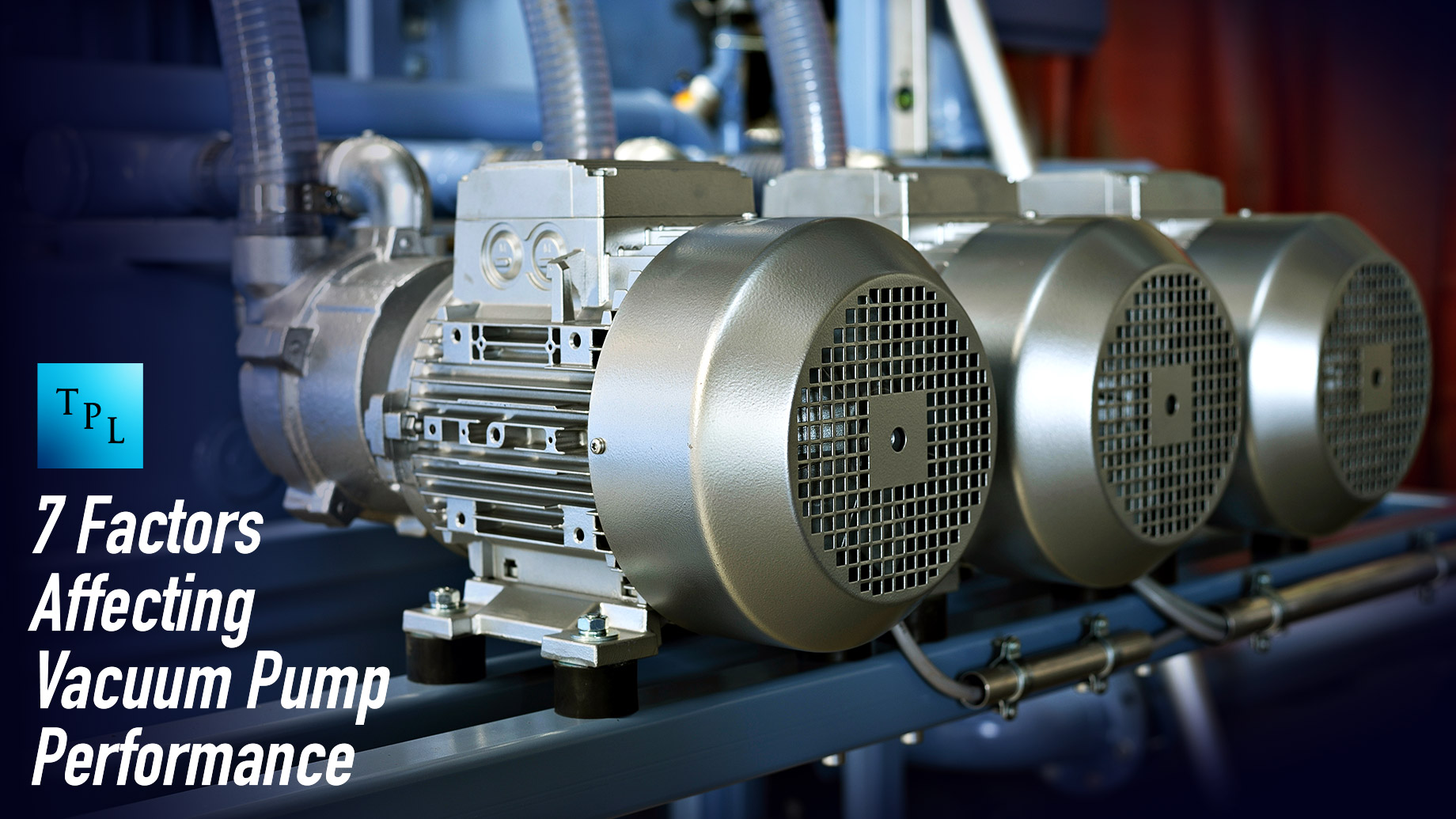
More than just the quality of the vacuum pump affects its performance. Environmental factors such as temperature, elevation, and humidity can all play a part in how well your vacuum pump works. Temperature affects the viscosity of fluids inside the pump, which can reduce efficiency and cause cavitation, resulting in power loss. Elevation changes affect air pressure within the vacuum pump, while humidity affects the vaporization and condensation of fluids in the system.
With that in mind, here are seven factors that can affect vacuum pump performance:
1. Vacuum Pump Size
The size of the vacuum pump will also affect the performance of the vacuum pump system. Smaller vacuum pumps can be used for lower-capacity systems, while larger pumps may be necessary to achieve higher levels of vacuums. Additionally, the type of rotary vane pump or other types of pump being used will also determine the size of the pump needed for the application.
2. Operating Environment
The temperature and humidity in the operating environment can have a big impact on vacuum pump performance. If a system is operating in higher temperatures and humid conditions, it may require additional cooling or special materials to reduce wear and tear on components. Additionally, if the operating environment is exceptionally dusty, it may be necessary to use a filter system or other measures to keep dirt and debris out of the pump.
3. System Vacuum Level
The amount of vacuum required by the system will also play an important role in determining which type of pump should be used. High vacuum pumps are designed for low-pressure applications, while low vacuum pumps can be used for higher-pressure systems. Additionally, the type of pumping cycle needed to achieve a desired vacuum level may also vary depending on the application.
4. Type of Gas
The type of gas present in a system will also affect the performance of a vacuum pump. Highly-reactive gases may require special materials or additional cooling measures to prevent damage to components. Additionally, the presence of certain corrosive gases in a system can lead to accelerated wear and tear on pump surfaces and other components.
5. Duty Cycle
The duty cycle of the vacuum pump will also play an important role in determining its performance. Vacuum pumps with longer duty cycles are designed to handle higher amounts of workload, while pumps with shorter duty cycles may be better suited for smaller systems. Additionally, it’s important to note that overworking a pump can lead to component failure and reduced performance.
6. Maintenance
Regular maintenance is essential for ensuring optimal performance from any vacuum pump system. Cleaning and replacing worn parts regularly can help extend the pump’s life while also preventing issues from arising due to dirt buildup or other causes. Additionally, it’s important to use the correct lubricants for specific components and ensure that all connections and seals are properly sealed.
Conclusion
The performance of a vacuum pump is affected by many factors, including the size and type of pump, operating environment, system vacuum level, type of gas present in the system, duty cycle, and maintenance frequency. Understanding how these factors affect performance can help avoid costly repairs and ensure that vacuum pump systems run smoothly.